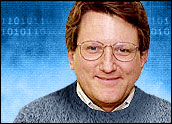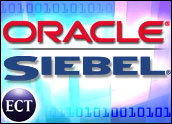
After reading the book Mindset: The Psychology of Success by Dr. Carol S. Dweck, I began to wonder if her concepts of fixed versus growth mindsets were either accentuated or diminished when it came to customer relationship strategies enabled with SaaS-based applications.
The many benefits of the SaaS platform — including agility, updates across an entire customer base, and low barriers to user adoption made me curious. Could SaaS-based CRM applications, supporting customer loyalty strategies, be more effective at enabling growth mindsets in companies? I dug into this question and started to research it.
If you haven’t read this book, I highly recommended it, and you can catch a clip of Dr. Dweck discussing the differences between the foundational concepts of her book here, courtesy of Guy Kawasaki’s blog entry last year.
While there is an abundance of information on TCO (total cost of ownership) of SaaS versus licensed software, the closest area of research I found pertaining to productivity of SaaS users relative to licensed users was in the area of customer loyalty. One report I found that was particularly interesting on the topic of customer loyalty was from Accenture, titled “Seller Beware: The Curse of the Disloyal Customer.”
Cultivating Customer Loyalty With a Growth Mindset
After extensively researching if either SaaS-based versus licensed applications foster a greater growth mindset, several key take-aways began to emerge, which are provided below:
- Creating processes that prize speed over completeness of response seem to be worthless from a customer loyalty standpoint. Now this process cuts across both SaaS-based and licensed CRM apps, yet the approach SaaS-based vendors are taking to create a more “one and done” approach is paying off based on both conversations with a friend who is CIO of a financial services firm. While he resisted SaaS-based CRM, the traditional licensed applications had been designed to look first for efficiency and speed of response — which in the end had no bearing on customer loyalty. Completeness of response and closure did. His CRM system had been build to rack up metrics that showed people “working hard,” yet there was no closure on the customer side.
Putting this into the context of fixed versus growth mindsets, it was clear that when efficiency alone was the priority when a CRM system was designed that it was easier to avoid challenges, ignore criticism from customers (as there was no metric to measure that) and see interactions as a nuisance to be quickly alleviated. All the signs of a closed mindset, CRM systems designed like this do not foster and encourage learning, only competition between sales and service reps. The result is that a closed mindset alienates more customers and the company eventually loses more repeat business as a result.
- Building growth mindsets into customer interactions leads to higher loyalty. One of the foundational points of the book is the differentiation of a fixed versus growth mindset. It occurred to me as I re-read the book that so many CRM systems are designed to specifically align with a fixed mindset mentality in all phases of the sales cycle through the customer retention and loyalty phases as well. Dr. Dweck makes the point that it is not in the winning or losing of life’s challenges, but in the learning from them.
To read an excellent overview of how learning figures into creating a growth mindset, this article from Stanford Magazine is worth reading. The point being that from a CRM standpoint if learning becomes the goal — learning how to better serve customers, how to gain greater levels of loyalty — and not the fixed mindset goal of just ticking off metrics, then greater success comes with time.
- Making customer-facing strategies more about learning and less about the high-pressure up-sell or cross-sell is critical. When CRM systems have been designed from a closed mindset the entire customer contact effort is about up-sell and cross-sell, not necessarily about learning how to better engage with and serve the customer in the future. Voice of the Customer (VoC) programs are becoming pervasive in organizations that have a growth mindset and are willing to listen to their customers, even if it means facing bigger challenges and setbacks than if the customers had been ignored.
- Loyalty strategies must go hunting for challenges and setbacks to grow. What is the most valuable take-away from Dr. Dweck’s book is that a person only grows by going out and looking for challenges to overcome and master, and that only by facing down big challenges can any significant growth ever happen. She contends that by doing this a growth mindset can be achieved. It’s the same with the research completed on customer loyalty; the companies that went out looking for what was wrong with their customer loyalty programs were able to achieve the most. Arrogantly assuming all is OK lead to disaster. In speaking with CIOs in the financial services industry and also in the manufacturing industry, this became abundantly clear.
The fact that so many CRM systems have been designed from the fixed mindset perspective, seeing intelligence about customers being predictable, supporting processes that are not flexible enough to allow either for tackling obstacles or allowing for negative customer feedback to percolate up an organizations’ ranks needs to change. Sure, there are those organizations whose cultures are so infused with a growth mindset that their customer-facing strategies, including the loyalty programs, reflect that. The differentiation of fixed versus growth mindsets however has a major impact on the long-term success or failure of customer loyalty programs
Once any company changes from a fixed to growth mindset, their ability to better seek out and respond to challenges is going to be accentuated using SaaS-based applications.
Bottom line: The speed of deployment, low barriers to user adoption, ability to customize applications and ability to tie in negative feedback from customers which are essential for growth shows that SaaS-based platforms have the potential to nurture growth mindsets of the long term.
Louis Columbus, a CRM Buyer columnist, is a former senior analyst with AMR Research. He has worked with enterprise clients on defining solutions to their channel management, order management and service lifecycle management strategies. He also teaches graduate-level international business and marketing courses at Webster-Loyola Marymount University and University of California, Irvine. He is the author of 15 books on technology and two books on analyst relations. His book, Getting Results From Your Analyst Relations Strategies, can be downloaded for free.




































